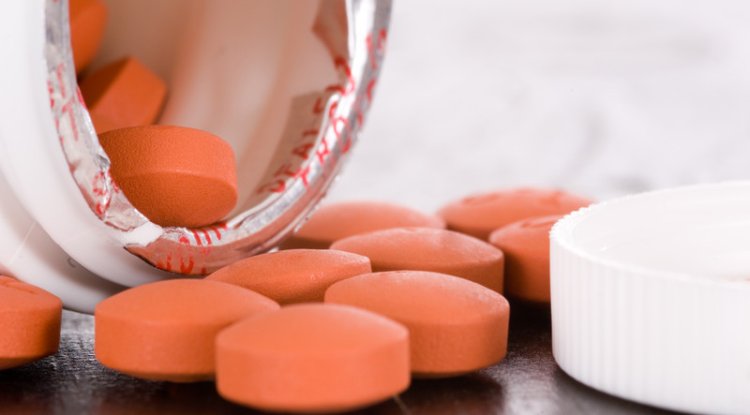How to Stay Safe During Severe Heat Waves and Chronic Illnesses
Even though summer is only halfway over, the United States is already seeing record-breaking heat waves, a trend that is frighteningly common throughout the world. These unrelentingly high temperatures are not only uncomfortable for people with long-term medical issues, but they can also be seriously harmful.

Certain medical disorders, such as diabetes, heart disease, asthma, and pregnancy, can significantly increase your risk during periods of excessive heat. The good news? You may safeguard yourself and keep ahead of the increasing temperatures with a little preparation, a few doable tactics, and open communication with your physician.
How Heat Increases the Risks to Health

Your body has to put forth extra effort to maintain a stable core temperature when temperatures rise sharply. However, your body's capacity to stay cool may be compromised if you are currently taking medication that affects heart rate, body temperature, or hydration, or if you are managing a chronic ailment.
how particular conditions may be affected:

Heart Conditions
Your cardiovascular system is further taxed by high temperatures. In order to release heat, blood arteries dilate, lowering blood pressure and making your heart beat more quickly. In susceptible people, this can result in heart attacks, arrhythmias, and even heart failure.
Conditions of the Lungs and Asthma
Hot air can irritate the lungs and constrict airways, particularly when combined with increasing ozone pollution. Even indoors, people with asthma or chronic obstructive pulmonary disease (COPD) may have trouble breathing. The catch is that inhalers left in hot automobiles or baggage could not deliver as much medication as anticipated.
Mental Health Issues

According to research, heat waves are associated with an increase in psychiatric hospitalizations, aggressiveness, and suicides. The heat may exacerbate symptoms or impede decision-making for people with schizophrenia or mood disorders, particularly if they live alone or have limited access to cool places.
Diabetes
Diabetes type 1 and type 2 can both impair your body's capacity to control its temperature. Blood sugar levels that are dangerously elevated might also result from dehydration.
Heat's Hidden Dangers: Organ Strain and Electrolyte Imbalance

You lose electrolytes, which are minerals that keep your heart, nerves, and muscles working properly, along with water when you perspire a lot. This imbalance can lead to nausea, lightheadedness, or exhaustion in those with diabetes, heart disease, or kidney disease, or worse, acute kidney failure and arrhythmias.
Indeed, during multi-day heat waves, hospital admissions for heat stroke, sunstroke, fluid imbalance, and kidney problems increase, according to Medicare data. Additionally, hospitalizations can rise for as long as five days following the hottest day, so the danger does not go away overnight.
How to Create a Custom Cooling Plan
If you are already at risk, you do not need to wait for a formal heat alert to take action. People with long-term illnesses are encouraged by the CDC to develop their own cooling strategies. Here's how:
Consult your physician.
You may become more sensitive to heat if you take certain medications, such as blood pressure meds, diuretics, or psychiatric treatments. It is crucial to understand how your current routine may impact your body's capacity for cooling, even if your doctor does not suggest any modifications.
Make a Cooling Strategy
Consider your options, such as purchasing a fan, finding nearby cooling facilities, or rescheduling your schedule to avoid the hottest parts of the day. Avoid waiting until the temperature reaches 100°F. If you have a medical condition or are taking several drugs, even lesser heat can be dangerous.
Regularly check the forecasts.
Develop the daily practice of looking at heat index forecasts in addition to temperatures. Check for reports on air quality and humidity levels. Local weather applications and the New York Times' heat maps provide useful, comprehensive alerts.
Maintain Proper Hydration

Water should be consumed all day long, not only when you are thirsty. Restock electrolytes with low-sugar choices if you are spending a lot of time outside or perspiring. Read labels carefully because many sports drinks include a lot of sugar, which can cause issues for diabetics.
Pay Attention to Your Body

Stop and calm down right away if you have lightheadedness, nausea, weakness, or unusual irritability. Locate some shade, go inside, relax, and drink plenty of water. Heat-related disease symptoms can appear suddenly.
The Conclusion: There Is a Connection Between Climate Change and Your Health
Heat waves are getting worse due to climate change, so this summer is not just awful. The new normal is this. To keep safe and healthy, people with chronic diseases need to reconsider their daily schedules, medications, and even their living arrangements.
You do not have to be surprised by the heat. Consult your physician, create a customized action plan, and view heat as a significant health concern rather than only a nuisance.
It will be appreciated by your future self.
What's Your Reaction?




















